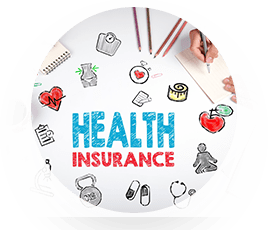Contributing Author - Daniel Groves
Managing your finances can be tough for people of all backgrounds, but for those in addiction recovery, it can be an especially challenging skill to grasp.
Many recovering addicts may have had a troubled background where they didn’t learn how to organize their personal finances, or may have had a good handle on their finances, but fallen out of practice in the course of their addiction.
Substance use disorders are expensive in and of themselves, and with the legal and medical costs that can often accompany them, it's challenging, but important, for recovering addicts to be able to manage their personal cash flow in order to support their road map to sobriety and regain control over their life.
In this guide, we’ll look at the various components of planning your finances for addiction recovery, and the key steps you need to take to plan for a brighter financial future.
Starting Small: Assessing Your Financial Situation
Much like with addiction recovery, the first crucial step in managing your finances is acknowledging the fact that they need work. To set yourself up for the best chance of success, we recommend starting by taking stock of your finances and building a summarized top-down view of your financial obligations and resources.
If you don’t know where to begin when it comes to getting your personal cashflow organized, here are a few of the more accessible steps you can take to gain a better understanding of your finances.
Opening a Bank Account that Makes Organization Easier
Most people open a bank account when they’re fairly young and then go through life without thinking about how well their bank is working for them. If your addiction has drawn your attention away from your finances for some time, one of the best places to start is reviewing banking or fintech services with an emphasis on easy wealth management and high interest savings opportunities.
List Your Debts
Substance misuse problems can have a serious impact on your ability to budget and control your outgoings. If you’re looking to manage your outstanding debts, the first step is to list them all, creating a comprehensive list of all the amounts you owe, who you owe them to, and the terms of each individual debt.
List Your Outgoings
Rent or mortgage payments, utility bills, gas, public transport fares, subscriptions and food should all be accounted for here. Try to account for all your usual outgoings and make estimates where necessary to get a ballpark total.
List Your Assets
Your regular income, your savings, if any, and any vehicles or similar big-ticket items you own, should all be accounted for under a list of your assets.
Gather Some Tips on How To Stop Losing Money
The small little expenditures add up quickly. So much so, that oftentimes we realize that a cup of coffee a day is costing us hundreds of dollars a year. Gather some helpful tips on keeping your pockets tight so that you can save on the little things.
Looking for Private Health Care Plans that Cover Mental Health Services?
We can help.
Get a QuoteThe Cost of Recovery
Though there’s a whole host of costs and outgoings you’ll need to think about through the course of your life, as someone who struggles with a substance misuse problem, one of the most pressing costs on the horizon will always be the actual cost of your recovery.
There are two routes you can take when it comes to accessing addiction treatment in Canada: public and private. Here’s a quick look at both options to help you decide which one is better for your needs and financial situation…
Public Addiction Recovery
Public addiction recovery treatment centers are part of Canada’s free healthcare system, covered by OHIP, if you’re in Ontario. This means that if you’re a citizen or a permanent resident, and you’re in need of professional support while recovering from your addiction, you’ll be able to access public addiction recovery services for free. Other provinces or territories in Canada have similar systems and access to addiction recovery; they are just governed under their own provincial rules.
The fact that there’s no cost to access public services is an attractive prospect when you’ve been struggling with your finances, but choosing to go down this route isn’t without its challenges.
Based on recent data, it’s thought that 21% of the population, or around one in five people, will suffer from a substance use disorder at some time in their life. With the need for rehabilitation treatment being so high across the nation, those who opt for the public healthcare route will have to prepare for delays and limited resources, as well as healthcare providers who simply don’t have the capacity to give you treatment that’s personalized to your unique struggles.
Treatment providers in both the public and private sectors are trained to high standards, and countless people have made successful addiction recoveries through both avenues. However, if you’re looking for a particularly efficient mode of treatment, or you’re experiencing circumstances that call for a treatment that’s attuned to your specific needs, it may be harder to find a treatment that meets your expectations using public resources.
Private Addiction Recovery
For more personalized treatment, and a higher chance of access to the medical resources you need, recovering through private healthcare providers is the way to go.
If you’ve been lucky enough to avoid hospitals for most of your life, then the term “private healthcare” might make you instantly assume that you don’t have the means to access this kind of treatment. However, if you’re in the United States and have sufficient healthcare, there are many rehab centers that accept Kaiser insurance to help get you into a course of treatment. North of the border and into Canada, making the transition into sober living is just as accessible.
Talking to your insurers or family doctor about addiction treatment can be a daunting prospect. However, it’s important to remember that your insurer deals with these kinds of claims more often than you might think, and that the benefits of your policy are put in place to make healthcare affordable and accessible when people have health problems, including substance addiction.
There are various different kinds of addiction treatments available through most good healthcare insurers, including:
- Medical detox
- Impatient rehab programs
- Outpatient care
- Detox with co-occuring mental health treatments
- Maintenance medication to help with long-term sobriety
Each of these treatments will be better suited to different needs, and aimed at equipping you to tackle different challenges. Look into your policy documents and talk to your insurers to understand the specifics of what your plan covers, and you’ll soon find a course of treatment that’s right for your unique situation.
Staying Organized During Recovery
There are countless resources out there to help you define your financial goals, create a budget, and develop habits to make sure you’re sticking to it. However, for people in recovery, managing your finances requires a slightly different approach that accounts for your circumstances and the personal challenges of tackling an addiction.
As you work to keep your personal cashflow in check through the course of your recovery, here’s some of our key tips for financial planning in recovery.
Find Healthy Ways to Manage Stress
Stress is one of the most common triggers for relapse, so identifying your key sources of stress and finding healthy ways to counteract them should be a top priority when managing your finances.
While effectively budgeting and building a long-range view of your finances will help prevent stress affecting your recovery to some extent, everyone deals with some kind of stress every day, and finding healthy coping mechanisms to deal with this stress will help your chances for long-term success.
Doing some manageable exercise routines in response to triggers of stress, learning to meditate, and joining a community of people who are facing similar challenges to yours, are some of the most commonly-recommended ways to manage stressful situations for addicts in recovery, alongside dietary changes like getting more fiber and fatty acids.
Be Consistent With Budgeting
If you’ve let financial management fall by the wayside for some time, then organizing your financial goals and adjusting your budget may feel like something of a chore.
Obviously, there’s nothing wrong with finding financial management tedious, but being able to come back to it with consistency and diligence will help maximize your potential for long-term success.
Whether your most pressing financial goals are wiping your debts, building an emergency fund, getting back to school or anything else, finding a routine that keeps bringing you back to examining your saving and spending habits will be the best way to achieve the goals you’re aiming for.
Whether you use alarms, a personal Google calendar, or simple notes left around the house, designating a specific and regular timeslot for working on your finances will make you far more capable of achieving those longer-term goals.
Sweat the Small Stuff
With a set amount of monthly income and regular expenses that aren’t going anywhere, sometimes it can feel impossible to make the changes necessary to get your finances back on track. However, most people have relatively small recurring expenses that they take for granted, but which can make all the difference to their overall financial flexibility.
As you itemize your outgoings, make sure you’re not forgetting to sweat the small stuff, like ordering out when you could cook, sticking with a phone contract that doesn’t give you the best deal possible, or subscriptions to streaming services and apps that you aren’t using often enough to justify.
No one’s suggesting you should try to live without any luxuries whatsoever, but most people’s personal finances can be improved drastically through a harsh appraisal of their outgoings and a few well thought-out sacrifices.
Building for a Brighter Future
Dealing with a substance use disorder is one of the most challenging things any person can go through, but by securing your personal finances, you’ll be able to worry about one less stressor on your road to recovery, and set yourself up for a brighter future during sobriety.
We hope this guide has helped you as you work to assess your personal cashflow, adopt better habits for budgeting and management, and make your money work for you through the course of your recovery.
Related Article
Substance abuse doesn’t disqualify you from securing life insurance.
Find Out More HereIn Conclusion
At Insurdinary, we look out for your well-being. Whether it's your finances, your future, or your health, we have you covered. We offer a wide range of affordable health insurance policies which include robust access to mental health services to help you ensure you stay on track on your rehabilitation journey, since you’ve come so far already. Relapse rates are high, and even expected. Quality continued support provided to you by a mental health professional that works with you every step of the way to ensure your continued success and growth and steadfastness is something that we can provide. Your future is now. Reach out to us. We look forward to being able to assist you.
About the Author
Daniel Groves is a coach and author, constantly developing his knowledge and sharing his experience with a wider community: https://danielmgroves.co.uk/
Connect with Daniel on LinkedIn: danielgroves90






